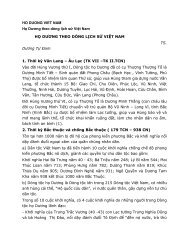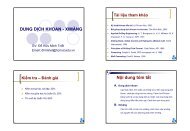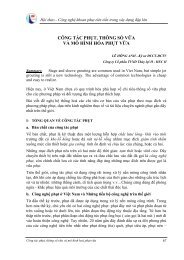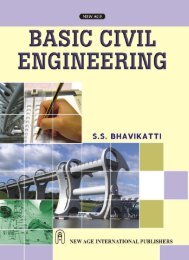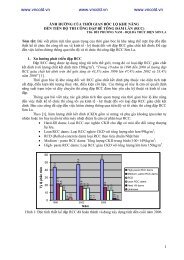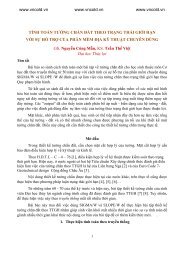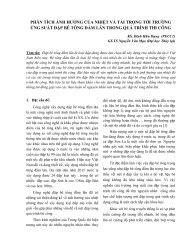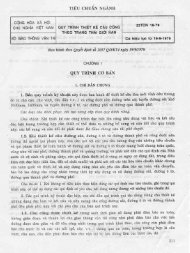Civil Engineering Project Management (4th Edition)
You also want an ePaper? Increase the reach of your titles
YUMPU automatically turns print PDFs into web optimized ePapers that Google loves.
costs. The problem is that borings often reveal a range of ground conditions, but<br />
unless numerous borings are taken, they seldom disclose the degree of persistence<br />
and exact location of one particularly difficult condition. In fact, if an<br />
experienced resident engineer and the experienced engineer find themselves<br />
surprised by the ‘unforeseen event’ it is difficult to maintain that the contractor<br />
should have foreseen it. The problem has to be solved on the basis of reasonableness.<br />
A contractor could not reasonably be expected to foresee ground as<br />
uniformly bad when trial borings only show it to be of variable quality, good<br />
and bad.<br />
The advantage of Clause 12 is that it permits many unforeseen conditions<br />
to be dealt with efficiently by a contractor with no dispute or problems of<br />
payment arising. It offers fair payment to a contractor so he will co-operate<br />
with the engineer in dealing with the conditions as effectively and economically<br />
as possible. Thus the employer pays only that which is necessary for dealing<br />
with the unexpected problem. Quite often the employer has to pay no more than<br />
he would have done had the condition been known beforehand and written<br />
into the contract. Thus both employer and contractor are fairly dealt with if<br />
Clause 12 is properly interpreted.<br />
The ECC conditions, (see Section 4.2(f)) include for unforeseen physical<br />
conditions on a similar basis, classifying it as ‘a compensation event’ (Clause<br />
60.1(12)). The test is worded, however, slightly differently from the ICE conditions,<br />
being conditions:<br />
which an experienced contractor would have judged at the Contract Date to have<br />
such a small chance of occurring that it would have been unreasonable for him to have<br />
allowed for them.<br />
The effect may be much the same as for the ICE wording but has not yet been<br />
tested to the same extent by the courts. The outcome for an employer may,<br />
however, differ as the boundary between what is covered by the contractor’s<br />
prices and what is not, may have altered by the difference in definitions.<br />
17.9 Payment for unforeseen conditions<br />
Variations and claims 215<br />
A problem arising with Clause 12 claims is assessing the cost of overcoming the<br />
unforeseen conditions. When the contractor has notified a claim under Clause<br />
12(2) he has to give details ‘as soon as practicable’ of how he is overcoming or<br />
intends to overcome the unforeseen conditions, with an estimate of the cost<br />
and delay they will involve (12(3)). The engineer can step in and instruct the<br />
contractor what to do (12(4)). Since the contractor has notified he is making<br />
a claim, the provisions of Clause 53 also apply, which require the contractor to<br />
keep records of his work in connection with his claim, and send ‘a first interim<br />
account’ giving particulars of the amount claimed to date, followed by further<br />
accounts at intervals required by the engineer. The contractor is entitled to




